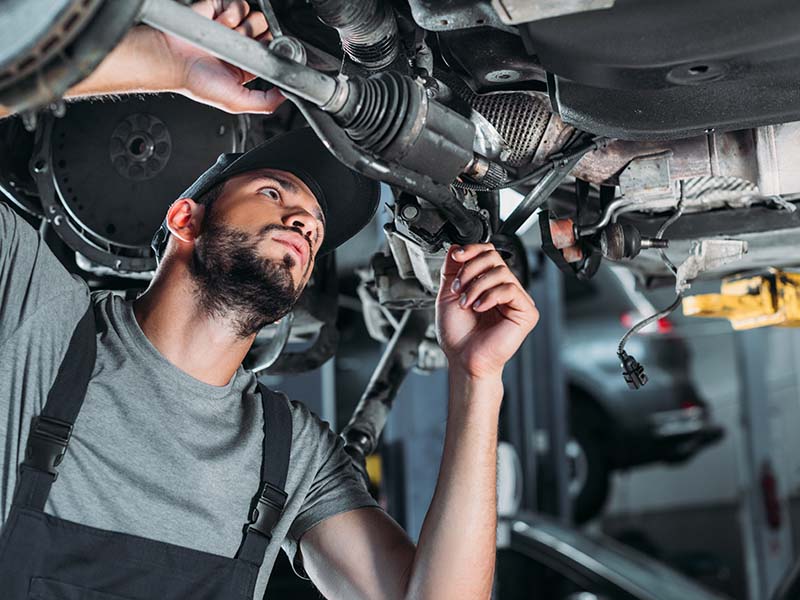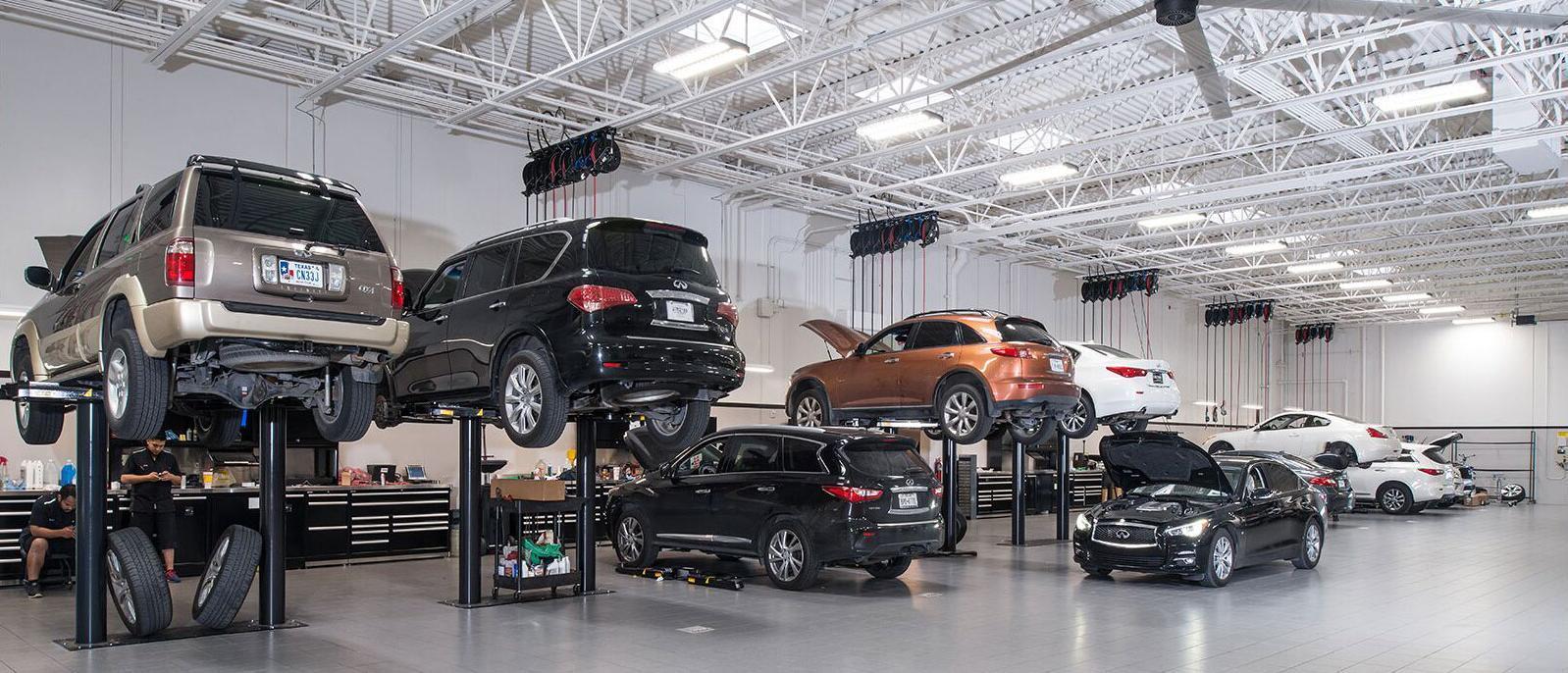All Categories
Featured

Every cars and truck make and version features its very own set of upkeep needs to guarantee it stays running smoothly for years. Whether you're driving a dependable sedan, a sturdy SUV, or a high-performance cars, complying with the correct maintenance schedule is key to stop break downs and costly fixings. In this article, we will certainly share upkeep recommendations customized to numerous popular auto makes and versions, supplying you with beneficial ideas on exactly how to best look after your vehicle.
- Ford Automobiles: Remain On Top of Liquid Checks and Tire Treatment. Ford automobiles, consisting of the Ford F-150, Explorer, and Combination, are designed for resilience and performance. To maintain these automobiles in peak problem, regular liquid checks are necessary. Engine oil should be transformed every 5,000 to 7,500 miles, and the coolant should be flushed and changed every 30,000 miles or as suggested in your owner's manual. Pay close attention to the brake fluid and power guiding liquid, too, which can deteriorate over time. Tire upkeep is one more essential aspect of keeping your Ford in top form. Frequently inspect tire pressure and revolve your tires every 6,000 to 8,000 miles to guarantee also wear and extend tire life.

- Toyota Cars: Timing Belt and Brake System Maintenance. In models with a timing belt (like the Toyota Corolla), it needs to be replaced every 60,000 to 100,000 miles to avoid expensive engine damage. The brake system likewise needs normal maintenance, especially on older models. Toyota cars also require interest to their air filters; changing the engine air filter and cabin air filter on a routine basis will assist maintain engine performance and air high quality inside the cabin.
- Honda Automobiles: Watch on Transmission Liquid and Suspension. Honda autos, such as the Civic, Accord, and CR-V, are preferred for their reliable engines and solid construct top quality. Nevertheless, they require certain focus to their transmission liquid. Unlike a few other lorries, Honda recommends changing transmission fluid every 30,000 miles to preserve the smooth shifting performance of the transmission. Routinely inspect the shock absorber for wear, particularly on models like the Honda Pilot or CR-V that may experience tension from constant family trips or off-road driving. Check the struts and shock absorbers for leakages or damage, as these components are vital to maintaining ride high quality and vehicle security.
- Chevrolet Autos: Focus on the Exhaust System and Battery Health. Chevrolet versions like the Chevy Silverado, Malibu, and Equinox are made to be tough, yet they call for normal treatment to maintain their efficiency. One of the most vital locations to keep an eye on is the exhaust system, especially for Chevy vehicles and bigger cars that lug heavy tons. In addition, the battery must be checked frequently, especially in designs with start-stop technology.

- BMW Autos: Timing Chain, Oil Adjustments, and Cooling System. BMW is understood for its luxury vehicles, including the BMW 3 Series, X5, and 7 Series. These high-performance autos call for special interest to keep their engines running effectively. Engine oil should be altered every 7,500 miles or as recommended by the maker, utilizing high-grade artificial oil. BMW models likewise rely greatly on their air conditioning systems, and routine evaluations of the radiator and coolant levels are vital to protect against getting too hot, specifically in turbocharged engines. On top of that, many BMWs use a timing chain rather of a belt, which generally lasts longer but still requires to be checked consistently for wear.
- Hyundai Cars: Fluid Modifications and Tire Maintenance. Hyundai lorries, such as the Elantra, Sonata, and Santa Fe, are known for their affordability and dependability. Regular liquid adjustments are important for maintaining the engine running efficiently. Replace the engine oil every 5,000 to 7,500 miles to stop engine wear. Transmission liquid ought to additionally be altered every 30,000 to 60,000 miles, depending upon the design. Tire treatment is especially vital for Hyundai vehicles, as appropriate tire rising cost of living and normal rotations assist maintain gas performance and boost safety and security. Hyundai vehicles also benefit from regular checks of the brake system and battery health, which ensures both safety and security and efficiency.
- Mazda Vehicles: Timing Chain and Brake Upkeep. Mazda, recognized for sporty and fashionable automobiles like the Mazda3, CX-5, and MX-5 Miata, requires details upkeep to make sure performance. Timing chains in Mazda engines are typically a lot more long lasting than belts but still require to be monitored for wear, specifically in high-mileage automobiles. The brake system is another area that requires routine attention. Mazda owners ought to inspect the brake pads and brake fluid occasionally, especially if the automobile is driven in hilly areas or used for towing. Additionally, Mazdas typically include advanced suspension systems that should be checked for wear if the auto experiences misuse or too much roadway resonances.
Final thought. Appropriate maintenance is vital for the durability and efficiency of any kind of car. Each automobile make and model comes with its own set of demands, and adhering to the supplier's upkeep routine is the most effective means to guarantee your car continues to be in top condition. From fluid adjustments to brake inspections, dealing with specific maintenance tasks tailored to your vehicle's brand name will certainly assist you prevent expensive repair services and maximize the life of your vehicle. Constantly describe your vehicle's owner's guidebook and speak with a specialist technician to remain on top of your vehicle's requirements. Regular care today can result in much better efficiency and fewer issues in the future.
Latest Posts
Find the Top Auto Repair Deals in Montclare, Chicago
Published May 24, 25
1 min read
Trustworthy Overhead Door Solutions for Houses and Businesses
Published May 23, 25
1 min read
Improve Your Residential Property with Overhead Door Systems
Published May 22, 25
1 min read